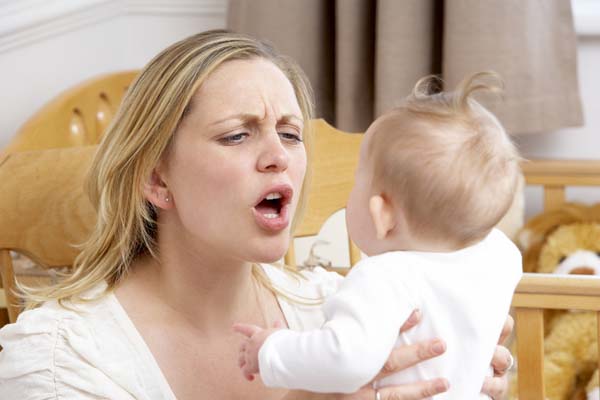Shaken Baby Syndrome (SBS) is a form of abusive head trauma (AHT). Abusive head trauma results from injuries caused by someone vigorously shaking a child. Shaking a baby is a serious form of child abuse that occurs mostly in infants in the first year of life. Babies (newborn to 4 months) are at greatest risk of injury from shaking.
When someone forcefully shakes a baby, the child's head rotates about the neck uncontrollably because infants' neck muscles aren't well developed and provide little support for their heads. This violent movement pitches the infant's brain back and forth within the skull, sometimes rupturing blood vessels and nerves throughout the brain and tearing the brain tissue. Serious injuries associated with abusive head trauma may include blindness or eye injuries, brain damage, damage to the spinal cord, and delay in normal development.
Normal interaction with a child, like bouncing the baby on a knee, will not cause these injuries. It's important to never shake a baby under any circumstances.
Research shows that shaking most often results from crying or other factors that may trigger the person caring for the baby to become frustrated or angry. The fact is that crying—including long bouts of inconsolable crying—is normal developmental behavior in infants.
If you feel as if you might lose control when caring for your baby, the American Academy of pediatrics recommends the following:
- Take a deep breath and count to ten.
- Put your baby in her crib or another safe place, leave the room, and let her cry alone.
- Call a friend or relative for emotional support.
- Give your pediatrician a call. Perhaps there’s a medical reason why your baby is crying.

Your Baby checkup
what are the vaccinations that he should have taken until now?
Generate a report for my baby.
Track Your Baby Vaccinations
Find Your Baby name
Mohandessin
01002195777
01000012400
0233048350
Beverly Hills
01000012900
0238576831
El Tagamo3
Al Sheikh Zayed
02- 38514031
01000608597


